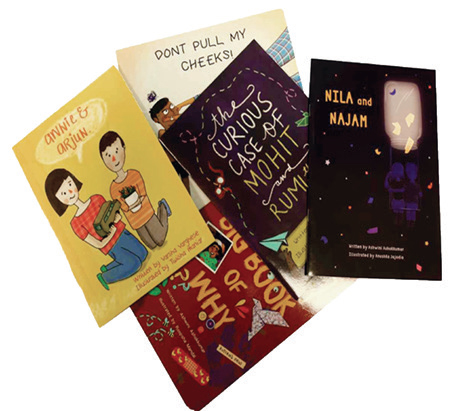Five Desi children’s books about diversity, feminism and consent
Strong, fair, sword-flinging princes saving meek, beautiful princesses is a literary trope prevalent in children’s literature across the world. It’s no wonder they grow up with subconscious beliefs of what men and women can and cannot do, and what they should aspire to be and look like.
Here enters The Irrelevant Project (TIP) with a goal to interrupt bias, prejudice and stereotyping in spaces of everyday learning. Started by Meghna Chaudhury and Alishya Almeida in 2016, the project strives to do justice by its very name: Make gender, colour, caste and other fixed definitions of identities simply irrelevant.
In The Big Book of Why, brown-skinned Anvesha gets a hard-bound notebook from her grandfather who encourages her to jot down all the questions that come to her mind as she goes about the world. The book includes illustrations of pages inside Anvesha’s book: ‘Why does daddy cook only on Sunday and amma cooks daily?’, Who called yellow ‘‘yellow?’’’ and other befuddling questions that come to a child’s mind about our complex society. In Don’t Pull My Cheeks!, a young, round-faced Bibloo finally learns that he has the right to say ‘No’ when he doesn’t want to be touched or picked up, as nice as the intention of the adult may be. His mother teaches him that he can simply say NO!
Nila and Najam is the story of a pair of twins who talk to each other about their dreams and goals every night before falling asleep. Through the endearing nightly exchanges between the siblings, we see a breaking down of stereotypes of what professions are suited to men and women.
The Curious Case of Mohit and Rumi the Rabbit is a rewriting of sorts of the popular Alice in Wonderland, where Mohit is ‘Motu’. Annie & Arjun is a sweet story about two siblings who come up with an innovative way of dividing chores amongst themselves.




